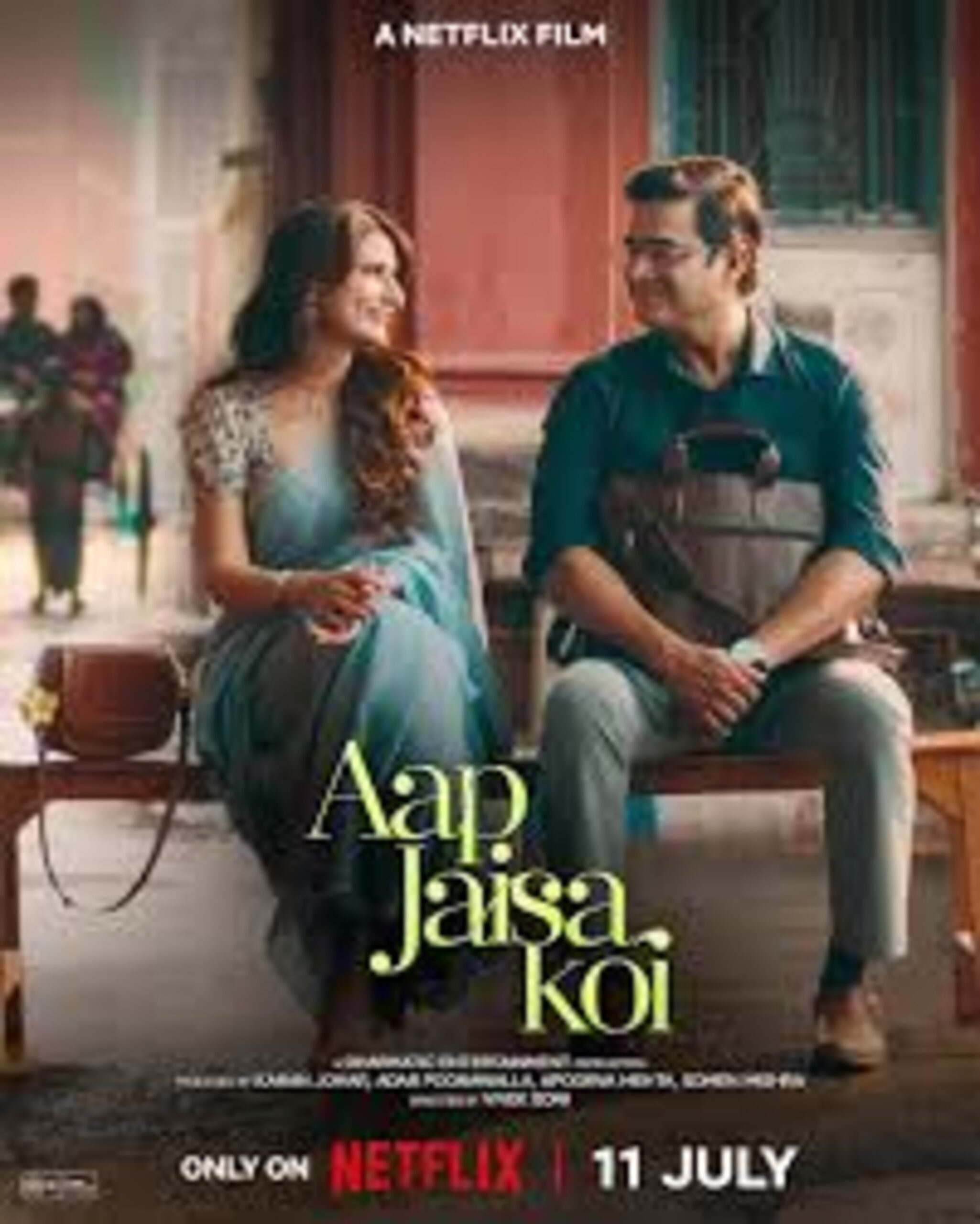
Aap Jaisa Koi (female desire film)
The offer is irresistible, the genuinely mainstream Hindi movie that would discuss the hardly ever reached theme of the unsatisfied sexual desire of the married woman. Aap Jaisa Koi with actors R. Madhavan and Fatima Sana Shaikh dares to venture into this bold territory with the sole purpose of triggering a dialogue. Unfortunately there is a lack of fire behind this, meaning that it sinks its powerful subject matter in a sea of words, with fewer audiences ever likely to be left intellectually satisfied with understanding what it sought to show but emotionally lost at sea.
Fatima Sana Shaikh is Zoya, a woman who gets bored with middle-class bliss and contentment of marriage to earnest yet same old Nikhil (Chandan Roy Sanyal). In comes Kabir (R. Madhavan), a charming performer and his presence only simulates an earthquake. He stirs a sleeping desire in Zoya, a strong, unknown desire of passion, intimacy and investigate herself, a desire that is throwing her well ordered world around.
The central concept of the movie is worth applause. Focusing on exploring female desire, particularly to explore it inside the boundary of marriage is still a taboo in the mainstream Indian cinema. The inner struggle of Zoya, that is, the social programming versus her instincts, is universal in nature. We want to taste her bafflement, her terror, her rising rebelliousness. Shaikh does her best to reflect this confusion; with telling eyes she betrays, many times, the storm behind the calm surface of Zoya. Madhavan is attractive in his own charming way and is the mysterious person who attracts Zoya to the unfamiliar.
However, Aap Jaisa Koi commits a deadly sin of confusing desire about discussing desire. Theatre director Mahmood Farooqui, who has been in the scene for a long time, is very heavy on dialogues, they are abject, recurring and philosophical. Along with the feeling, characters talk. They cut and divide the emotions, the motivations, and the structures of the society with a scalpel. Kabir tells about attraction. Zoya voice her anger. Nikhil argues about matrimonial nature. The moments that are supposed to be filled with tension or passion turns into an intellectual seminar.
This verbiage is a choke on the story. The film seems to tell us on and on when all it was required to do was just show it through beautiful visuals and thoughtful sidelong glances and suspenseful pauses. The emotional burden is hidden behind the strata of discourse. What is supposed to be a visceral interpretation of longing turns out to be an academic thesis on it. Possibility of primordial, human relationship is sacrificed in the script to explain each detail to the extreme.
It is devastating on its pacing. It is a static and repetitive movie that gives the philosophical back and forth. Even scenes in which tension could be built up or any suspense is created are broken down by yet another dialogue that is too long. The possible chemistry between Shaikh and Madhavan does not manage to pierce through the verbal onslaught either, and, as a result, their relationship appears to be more intellectual rather than electric.
One feels a certain wasted opportunity. The actors are competent. The motif is powerful and needed. The scenography is shot with scenes of silent beauty. However, it cannot reach its emotional potential because the film follows an endless pattern of conversations rather than the cinematographic narration. It even intellectually admits the female desiring nature but does not endeavour in bringing it out viscerally in the screen.
Final Verdict: (2.5 Stars): “Aap Jaisa Koi” is an ambitious film that messes up the handling of a critical topic. Although it is good to have tried to focus on the untapped love of a woman, in the process it is victim of its own script.





